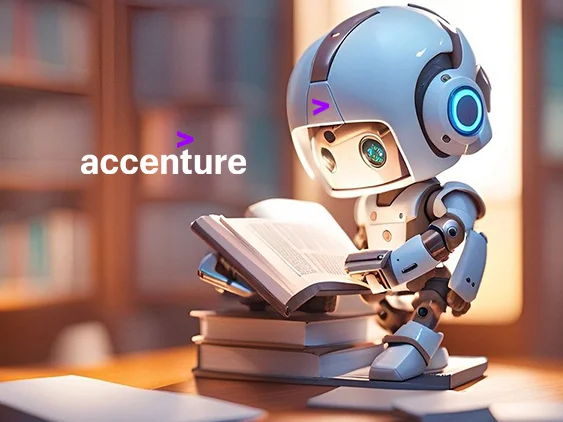Accenture’s new report highlights that to achieve the full potential of AI, organisations must reinvent work, reshape the workforce and prepare workers
“Work, workforce, workers: Reinvented in the age of generative AI,” – a new report from Accenture reveals an urgent need for business leaders to look beyond how generative AI affects specific tasks and roles and, instead, start to scale gen AI by redesigning processes across their organisations, as well as how people experience work.
To do this, leaders must commit to learning and leading in new ways that deliver economic value, drive business growth and benefit their people. Yet two-thirds of executives say they do not have the technology and change leadership expertise to drive the reinvention needed to fully leverage the transformative power of gen AI.
The report highlights organisations’ conflicting views about how to achieve the promise of gen AI and reveals a critical gap in trust. While 95% of workers see value in working with gen AI, approximately 60% are also concerned about job loss, stress and burnout.
“Success starts with leaders who are willing to learn and lead in new ways, to scale gen AI responsibly, to create value and ensure work improves for everyone,” said Ellyn Shook, chief leadership and human resources officer, Accenture. “It starts with asking a simple question: are people ‘net better off’ working here? This not only unlocks people’s potential and drives bottom-line growth, but also paves the way for workers feeling comfortable, trusting and ready to work with gen AI. What we’ve learned from the past as leaders is that what happens next is up to us. The best outcomes are ours to shape.”
Latest HRtech Interview Insights : HRTech Interview With Tommy Barav, Founder And CEO At TimeOS
‘Reinventors’ Leading Critical Changes
Just 9% of organisations are “leading” when it comes to their capabilities for reinvention and how they maximise the potential for generative AI to boost the bottom line, while increasing people’s proficiency, and level of comfort, with the technology. Over half of these Reinventors are taking action to reshape the workforce by redesigning jobs and roles around gen AI, and three-quarters are actively involving their people to help shape enterprise change efforts. In addition, nearly half (47%) of Reinventors are already thinking bigger—recognizing that their processes will require significant change to fully leverage gen AI.
“Generative AI has a more profound impact than any technology that has come before it. Our research underscores the need for organisations to have a gen AI reinvention strategy that addresses the full value chain, not just roles and tasks where AI can augment or automate how we already operate,” said Paul Daugherty, chief innovation and technology officer, Accenture. “When we look at scaling AI it needs to be through a holistic lens that reimagines how work is done, how to lead a workforce through that change, and how it can be a better experience for all.”
As part of their reinvention strategy, leading organisations are working to build an agile workforce by investing in skills mapping and data integration, so they have the predictive insights to ensure the right mix of skills to grow their people’s capabilities and their business. They are twice as likely to invest in growing people’s soft skills, along with tech skills, and twice as likely to anticipate workforce productivity gains of 20% or more in the next three years. By adopting these approaches, organisations can create $10.3 trillion in additional global economic value by 2038.
This agility must start at the top. For leaders to successfully bring a change of this magnitude into their organisation, they must ensure that work—not only what they do, but how they do it—works for everyone. Nearly all workers surveyed (94%) reported being ready to learn gen AI skills, though just 5% of organisations are providing training at scale. With AI learning from both data and interactions with humans, who are responsible for ‘teaching’ the machines, building that capability and fostering a ‘teach to learn’ culture is paramount.
As the future of work continues to evolve, people-centric approaches, including actively engaging employees to understand and act on concerns and build trust, will set leading organisations apart in both performance and culture.
Here is the full report to know more
Recommended : Untraditional Ways To Discover Tech Talent And Promising Software Projects
[To share your insights with us, please write to pghosh@itechseries.com ]

